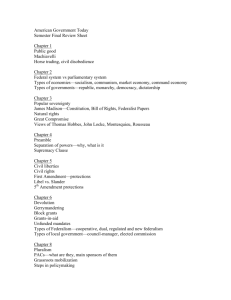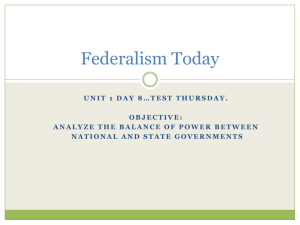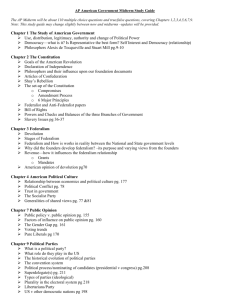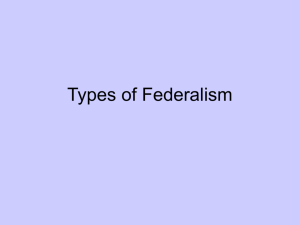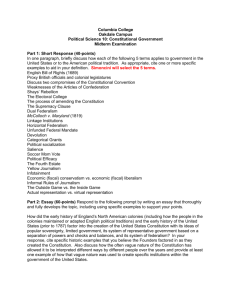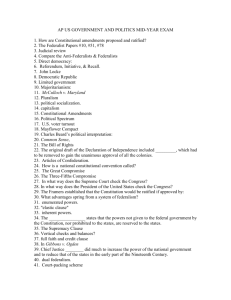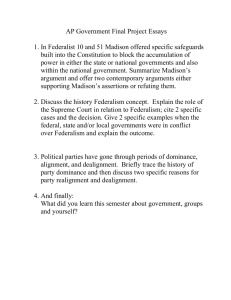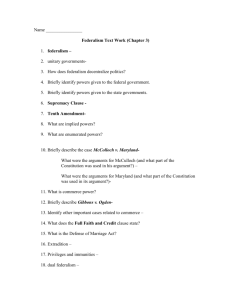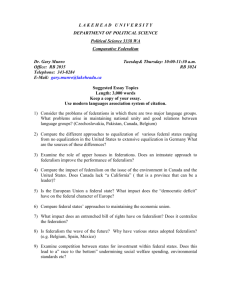Quiz questions for presentation 6
advertisement
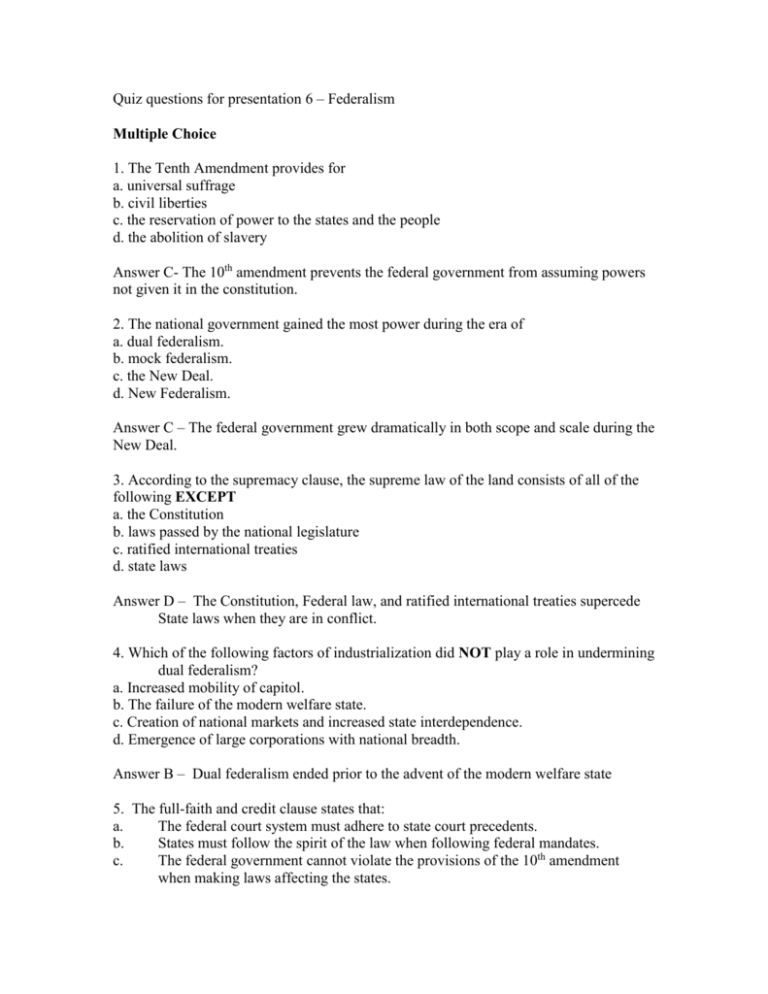
Quiz questions for presentation 6 – Federalism Multiple Choice 1. The Tenth Amendment provides for a. universal suffrage b. civil liberties c. the reservation of power to the states and the people d. the abolition of slavery Answer C- The 10th amendment prevents the federal government from assuming powers not given it in the constitution. 2. The national government gained the most power during the era of a. dual federalism. b. mock federalism. c. the New Deal. d. New Federalism. Answer C – The federal government grew dramatically in both scope and scale during the New Deal. 3. According to the supremacy clause, the supreme law of the land consists of all of the following EXCEPT a. the Constitution b. laws passed by the national legislature c. ratified international treaties d. state laws Answer D – The Constitution, Federal law, and ratified international treaties supercede State laws when they are in conflict. 4. Which of the following factors of industrialization did NOT play a role in undermining dual federalism? a. Increased mobility of capitol. b. The failure of the modern welfare state. c. Creation of national markets and increased state interdependence. d. Emergence of large corporations with national breadth. Answer B – Dual federalism ended prior to the advent of the modern welfare state 5. The full-faith and credit clause states that: a. The federal court system must adhere to state court precedents. b. States must follow the spirit of the law when following federal mandates. c. The federal government cannot violate the provisions of the 10th amendment when making laws affecting the states. d. States must recognize and honor the laws of other states. Answer D – States must give full faith and credit to the laws of other states, this is why you can use an Arizona driver’s license in Virginia. Essay Question How does the Tenth Amendment relate to the concepts of dual and cooperative federalism? Discussion Questions Local vs Central Govt Does it matter what level of government provides services? Are there some things that state and local governments are better suited to handle? Are there some things that the federal government is better suited for? 10th Amendment Is the 10th amendment a forgotten relic of 19th century America, or is it still relevant today? Links Congressional research Service brief of Federalism and State’s rights http://www.fas.org/sgp/crs/misc/RL30315.pdf Publius – Scholarly Journal devoted to federalism http://publius.oxfordjournals.org/ National Conference of State Legislatures – Interest group representing the states to the federal government http://www.ncsl.org/

